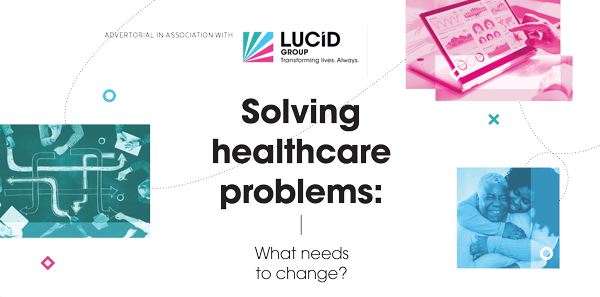
Over the last 18 months, the world has united around solving a singular healthcare problem, catapulting both the pharmaceutical industry and behavioural science into the public eye. We have seen the rapid development of and access to vaccines and medicines and government-led behavioural change programmes. In turn, this has sparked broad debate around the possibilities afforded by rapidly developing medicines and vaccines, the reliability and accuracy of technology platforms and the politics of government-led programmes versus personal choice.
One thing we can probably all agree on is that a singular focus bringing together health, economic and political considerations created effective change with demonstrable and truly meaningful outcomes in a very short period of time.
The question we must ask is: what is the healthcare problem we’re trying to solve?
Every day, through our work, we can see that healthcare problems are complex. They involve the intersection of multiple stakeholders at multiple decision points, operating within broad-ranging systems, underpinned by differing social and personal beliefs. To make an impact and transform lives, we need to be able to apply behavioural science to identify the problems that matter most and create focused interventions that consider all stakeholders and all parts of the system they interact within.
A complex problem requires a unified solution
There are multiple behaviours involved in each healthcare problem, which can make healthcare change a time- and resource-intensive process with results slow to be seen. Solution development requires a unified approach that considers the interdependencies between stakeholders, beliefs, behaviours and systems. Behaviour change programmes that achieve the greatest impact in a timely fashion must be problem-focused, breaking down the silos between stakeholders and internal functions.
Data is key to diagnosing and solving healthcare problems
How can we be sure that our programmes will change behaviour? And how do we know changing a specific behaviour will have a positive impact on improving health outcomes?
With so many different sources of data, we must challenge ourselves to identify the unique data sets that enable us to gather different expertise and look at the situation from all stakeholder perspectives, driving deep understanding of patient pathways, management strategies, healthcare systems and, most critically, the impact on health outcomes. By remaining focused on patient outcomes and how different stakeholder behaviours drive them, we can ensure our efforts and resources are focused on creating meaningful change.
If we know the problem we’re trying to solve, measuring impact is simple
Once we have identified the problem we’re solving, it is critical to be specific in the behaviours we are changing. We must define the behaviour, which stakeholder is doing it, when they are doing it, how they are doing it, how often and who else is involved. Only then can we be sure we are designing an intervention that overcomes barriers and will change behaviour.
Measurement is an important part of this and must be continuous. It doesn’t just tell us if we have achieved our goals, but it enables us to refine and improve along the way. Behaviour change is complex, it’s not linear, there are multiple interdependencies, and it doesn’t occur overnight. Setting clear objectives based on an understanding of the problem enables us to implement unique metrics frameworks and data sets that can demonstrate improved outcomes but also provide valuable insight into progress throughout the journey and inform adaptations as required.
Focus on impact, not intent
Behaviour change through behavioural science has been a part of healthcare for a long time. It is talked about frequently and its importance is well understood. But as an industry, have we realised its full impact? Have we seen transformations such as those we’ve observed through the pandemic? Are we focusing on where we can leverage our experience and expertise to accelerate improved care? Are we adapting our approaches to commercialising therapies and technologies to maximise the impact we can have and transform lives?
At Lucid, we take an outcomes-focused approach, measuring ourselves by the most robust metrics. We build long-term, strategic partnerships with our clients by organizing ourselves in focused teams that connect diverse expertise and skill sets, unique data sets and creative problem-solving approaches to identify and solve healthcare problems that will drive the greatest gain in overall health outcomes.
Ultimately, transforming lives requires health interventions that connect transformative solutions to transformations in care.
Tanya Goodyear is the Director of Innovation and Transformation at Lucid Group. If you would like to discuss the application of behavioural science in solving healthcare problems, email tanya.goodyear@wearelucidgroup.com




